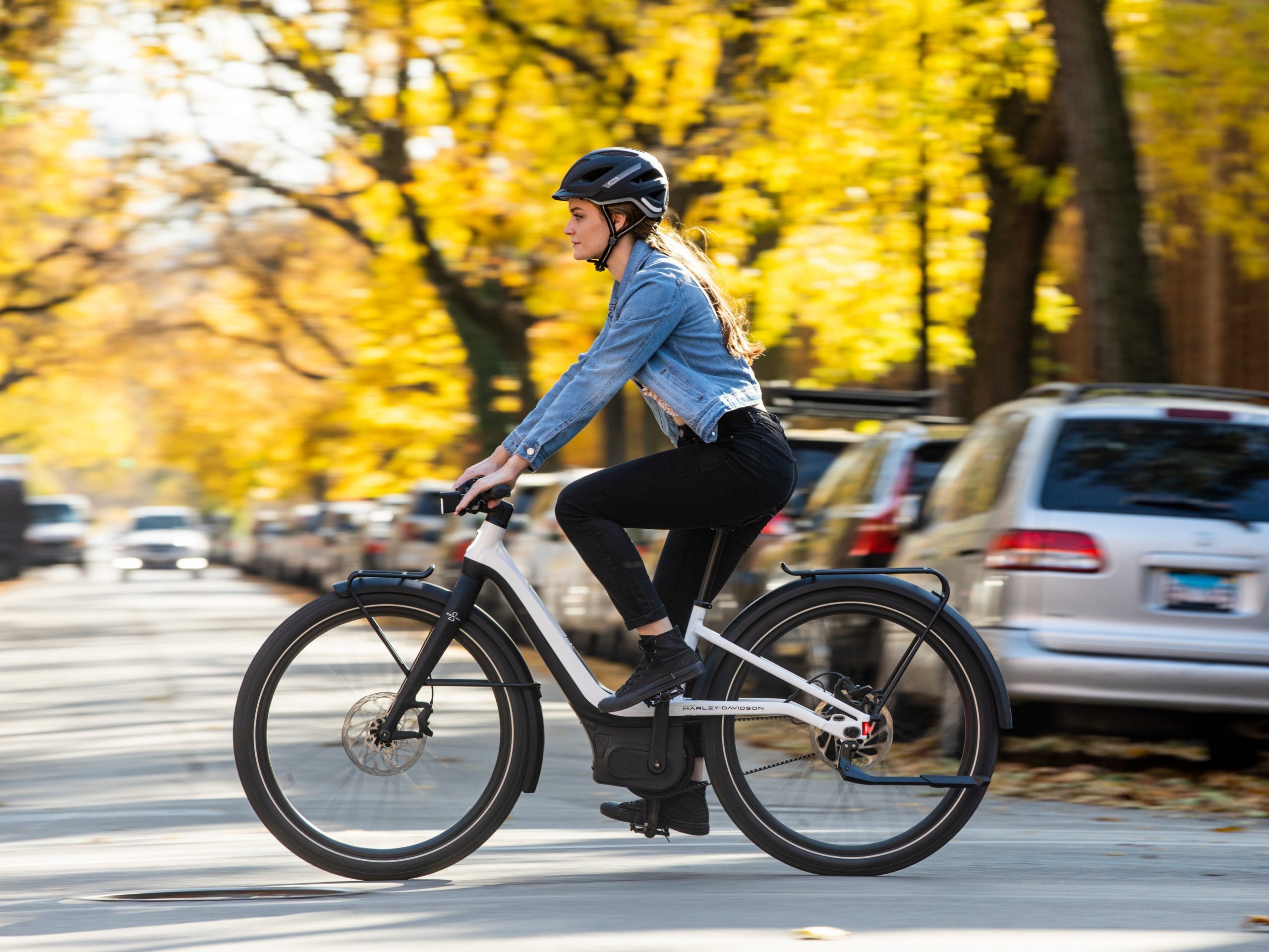
- Serial 1 is the first vertically integrated electric-bike brand from a transportation company.
- Only one of Serial 1's models is priced under $4,000, the limit for a proposed tax credit.
- Harley-Davidson spun Serial 1 off in 2020, but dealerships will sell e-bikes and offer services.
- See more stories on Insider's business page.
Serial 1, the electric-bike company started by the US motorcycle maker Harley-Davidson in 2018, signals an progression of the bicycle industry's business model and independent development. However, most of its models would not qualify for a proposed tax credit in President Biden's infrastructure bill.
Sales of electric cars have received an estimated $10 billion in US tax credits, but electric bikes could finally get some of that assistance from the federal government. Last month, the "Build Back Better" spending bill passed the House and it is now waiting for a decision in the Senate. The 2,000 page bill contains a 30% tax-credit for up to $3,000 spent on a new e-bike, but excludes models that sell for more than $4,000.
Serial 1 offers four models ranging from $3,800 to $5,500. In the original proposal of the bill, the tax credit covered 30% of spending up to $5,000 for bikes priced up to $8,000.
Unlike other transportation companies, which have partnered with existing bicycle companies or rebranded existing models from manufacturing facilities in Asia, Serial 1 has the distinction of designing and engineering its electric bikes at Harley-Davidson's headquarters in Milwaukee. "I think we sensed that the opportunity was substantial and significant" the brand director Aaron Frank said. "And the only way to be successful is to actually invest in building a really good product and a really good brand that has some staying power."
While the original plan was to launch the electric-bike brand with the iconic Harley-Davidson name, Serial 1 was spun off from the company last year. But Frank said Harley-Davidson will still hold a minority stake and sell Serial 1's electric bikes at its dealerships in Europe and the United States, which will also offer maintenance services.
Serial 1 is not explicitly a sustainability company like Allbirds or Patagonia, which emphasize their initiatives on helping the environment. But electric-bicycle businesses, including VanMoof, Charge, and Gocycle, are important as transportation alternatives to traditional cars and have the ability to help lower carbon emissions on a large scale. A well-built electric bike, capable of being used and maintained for several years, is also more sustainable than a poorly built, lower-priced competitor because it helps reduce the likelihood that cheap components, batteries, or the bikes themselves are sent to landfills.
Here are the most important things Frank said you need to know about Serial 1's business model.
Designed for noncyclists
Serial 1 designed most of its lineup specifically for city commuters. (Prices rose last fall due to widespread supply-chain issues.) Interested buyers in the United States and Europe can order Serial 1's bikes online through its website and a limited number of American independent bike shops, in addition to Harley-Davidson dealerships.
While plenty of competitors offer electric bikes for under $1,500, Frank said the Serial 1 line was deliberately designed for noncyclists to be intuitive, easy to use, low-maintenance, and built to last. Features like a carbon-fiber belt drive are initially more expensive but also need less replacement and attention over time, reducing waste and time in repair shops. "People who are not cyclists don't want to adjust derailleurs," Frank said. "They just want to get on a bike and ride."
Reimagined as a car alternative
Serial 1's models are primarily intended for urban riders as a commuting alternative to cars and public transportation. Frank said the company's market research showed this demographic was the biggest opportunity in the bike industry both for Europe and the United States, especially during the pandemic. Analysis by NBC News also found the percentage of electric-bike trips among public bike-share systems rose from 11% in May 2020 to 38% in May of this year.
Serial 1's original target — affluent consumers riding for fun — was based on the perception that its e-bikes would be seen as an expensive toy in North America. Frank said this idea was quickly reexamined in Europe as well as large cities in the US, replaced with people who use e-bikes as their primary mode of getting around.
As a result, Serial 1 is seeing more young and less affluent buyers it didn't expect, even at a higher price point. "When we look at how much it costs to drive a car for a year, compared to what it costs to ride an e-bike for a year, it's dramatic," Frank said. "Even if you spend $5,000 or $10,000 on an e-bike, it's still dramatically cheaper in terms of use."
The latest report from AAA put the average annual cost of a car at $9,666, but 40% of that cost measured how quickly the vehicle's value declined after five years.

Invested for the long term
Frank is well aware of how shortages of bike mechanics and parts, the closure of GM's electric-bike program last year, and a higher price point compared to other brands might make some potential buyers nervous about buying from Serial 1. That hasn't stopped the company from recently selling 650 limited-edition models priced at $5,995 in less than a week.
In response, Frank said the company had invested across several channels to increase the bikes' lifespans, including service training at Harley-Davidson dealerships for electric-bike maintenance; extra customer-service representatives to answer questions related to online sales; and high-quality standard components (wheels, tires, and brakes) that can be easily replaced at most independent bike shops.
"We're very serious about being a full-portfolio electric bicycle manufacturer," Frank said. "We're designing a product that is differentiated and relevant in the market and built to last,"

